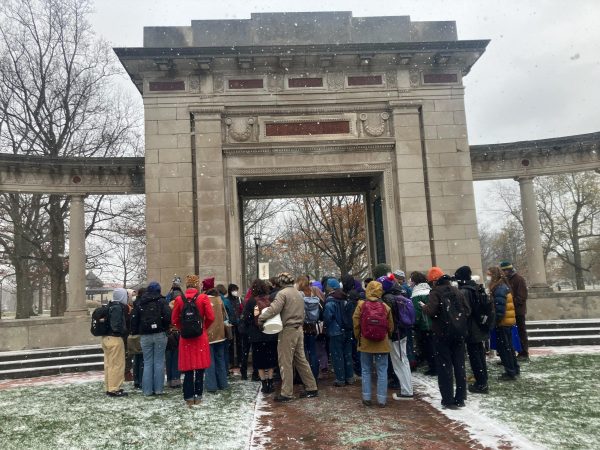Having Hard Conversations
Over a year ago, the world was irrevocably changed by the murder of George Floyd. This heinous crime by police officer Derek Chauvin was captured on camera and incited public outrage. Across the country, people marched and used civil disobedience to demand justice for George Floyd and all Black Lives.
In the months following Floyd’s murder, things started to change. Large cities like Austin, TX and Los Angeles, CA trimmed millions of dollars from their police departments’ budgets; other cities introduced anti-racist trainings or ended qualified immunity for their police officers. Earlier this year Chauvin was convicted and sentenced to 22.5 years in prison for second-degree murder. All of these moments felt like victories, though not nearly a dent in the systemic racism that this country was founded on. That work requires a longer process of unlearning and overhauling the systems we live within. In recent months, we have seen a lot of the energy and enthusiasm in the movement die down or fall solely on organizers and activists of color.
It was through reflecting on the past year that the idea to create this Special Issue was formed. At the Review, we wanted to do something, however small, to keep the conversation going, especially because we are no longer surrounded by constant protests in the streets. In general, much of this movement has transitioned to prioritizing education. Here, we hoped to create a resource to turn to — a way to envision and record experiences of race at Oberlin. We wanted to center Black voices and showcase the ways in which our community can do better.
In these pages, we also strove to build a public space where important and challenging conversations could take place. Too often we see in ourselves and our peers the feeling that we are supposed to have come to Oberlin fully formed, that we should have already done all the learning and unlearning that it takes to be anti-racist in the 21st century. Because of the fear of accidentally saying something stupid or uneducated or racist, we see Obies shying away from difficult conversations about race and inequality. In reality, we’re all here at this institution to do that learning and unlearning. No one comes to Oberlin fully formed. No one leaves Oberlin fully formed. In a country that was founded on white supremacy, being anti-racist is a lifelong learning process. No one should shy away from having hard conversations, because they feel they aren’t yet educated enough. We need to start having these conversations now if we want to secure a more positive future.
All this is something we’re trying to overcome in this issue. In these past months while putting this magazine together, the Review’s Special Issue staff had some hard conversations. There have been some embarrassing blunders and awkward miscommunications. Making this issue was a learning process for us as well, but it is exactly this kind of vulnerability and mistakes that are so pivotal to both our personal development and the progression of the world we live in.
This issue is about creating a space to have those conversations – to do the learning and unlearning. As student journalists, we believe that hearing the stories of individuals in their own voices is a crucial tool for harnessing and building empathy across differences. When you read this magazine, we hope you’ll hear just how many ways there are to be Black at Oberlin College.
In these pages, we see moments of triumph in our community through #BlackOutSenate. We explore a sense of place, understanding how the physical location of Afrikan Heritage House impacts both the history and future of safe spaces for Black students. We remember and honor the lives lost to violent acts of policing and the struggle of organizers to honor their memory. We appreciate moments of celebration like Juneteenth. We learn from individual stories in fighting oppression, from marching the streets of New York last year to responses to Ku Klux Klan sightings in Oberlin, circa 2013. We pause to look at racism in academia and consider ways to adopt anti-racist pedagogy and appreciate the successes of ideas like the Science and Technology Research Opportunities for a New Generation program. We close in gratitude to people and their everyday work in telling stories, building communities, and bettering lives.
So here we are, we hope this issue will make you think about the generations of Black activists, organizers, artists, visionaries that got us to where we are today. Too often stories around racial justice are reduced to only the struggle; we wanted this issue to reflect and highlight the happiness, fulfillment, and success of Black Obies as well. We hope these voices inspire you the same way they have us. We intend to keep learning, educating ourselves, and using our platform for the benefit of marginalized communities. Everything to come, we do together.


